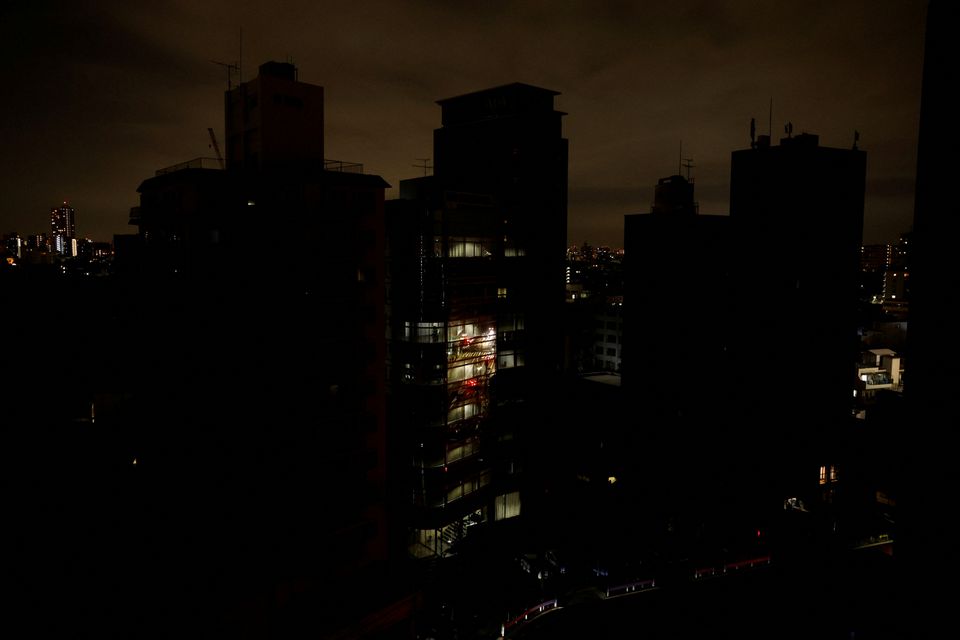Neon signs were turned off, lights dimmed and thermostats dialled down in Japan on Tuesday after the government issued an urgent call to save energy, warning of blackouts after an earthquake last week caused a serious power shortage.
As snow fell in Tokyo and the temperature dropped to 2 Celsius (35.6 Fahrenheit), Tokyo Electric Power Co (Tepco) said demand had spiked and up to 3 million households could lose power after 8 p.m. (1100 GMT) if usage rates did not come down.
“At this rate, we are coming closer to a state where we will have to conduct power outages similar to those that took place after the quake,” Minister of Economy, Trade and Industry (METI) Koichi Hagiuda told a news conference.
The magnitude 7.4 earthquake on Wednesday last week off the northeastern coast – the same region devastated by an earthquake and tsunami in 2011 – temporarily cut power to about 2 million households, including hundreds of thousands in Tokyo.
The quake hit six thermal plants, knocking them out of operation in areas served by Tepco and Tohoku Electric Power Co, and the damage could leave some of them idle for weeks or even months, Hagiuda said.
Hagiuda called for an additional 5% or so of power savings every hour from 3 p.m. to 8 p.m., equivalent to about 2 million kilowatts per hour.
Chief Cabinet Secretary Hirokazu Matsuno earlier called on residents in eastern Japan impacted by the power crisis to do their part.
“We request your cooperation … such as by lowering your thermostats to around 20 degrees Celsius and switching off any unnecessary lights,” he told a news conference.
Numerous users responded to the call.
National broadcaster NHK dimmed its studio lights while electronics retailer Bic Camera turned off about half of the televisions at dozens of its stores.
The 634-metre Tokyo Skytree tower turned off its lights for the whole day for the first time and operators of the city-centre Tokyo Tower lit up only its bottom half.


